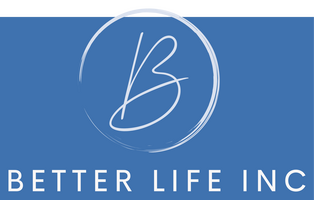Journaling has been found to have numerous benefits for the brain and overall mental well-being. When we engage in the practice of journaling, it activates various regions of the brain and promotes cognitive processes that contribute to our emotional and psychological health. Here are some ways in which journaling affects the brain:
- Emotional Regulation: Journaling helps regulate emotions by activating the prefrontal cortex, which is responsible for executive functions such as decision-making and emotional regulation. When we write about our emotions and experiences, it allows us to process and make sense of them, reducing their intensity and promoting emotional well-being. Engaging the prefrontal cortex also gets us out of our emotional thinking including the limbic system which is responsible for our panic, anxiety, and depression as well as PTSD symptoms. Trauma is stored in the limbic system and by shifting gears to the prefrontal cortex by doing something organizational, we can calm our system and reduce intrusive thoughts.
- Memory Enhancement: Writing in a journal involves recalling and reflecting on past events, which engages the hippocampus, a region associated with memory formation. Regular journaling can improve memory and cognitive function by strengthening neural connections in the brain.
- Stress Reduction: Expressive writing, such as journaling, has been shown to reduce stress levels. When we write about our worries, fears, or stressful experiences, it activates the amygdala, the brain’s fear center. This activation helps to release and process negative emotions, leading to a reduction in stress and anxiety.
- Self-Reflection and Insight: Journaling encourages self-reflection, introspection, and self-awareness. This process engages the medial prefrontal cortex, which is involved in self-referential thinking and introspection. By reflecting on our thoughts and experiences, we gain insights into our patterns, beliefs, and behaviors, leading to personal growth and self-discovery.
- Creativity and Problem-Solving: Journaling stimulates creative thinking by activating the brain’s right hemisphere, which is associated with creativity and intuition. When we engage in free-flowing writing or brainstorming in our journals, it allows us to tap into our creative potential and generate new ideas. Journaling can also help us explore and find solutions to problems by engaging the brain’s problem-solving abilities.
- Mindfulness and Focus: Journaling can promote mindfulness and present-moment awareness. When we write in our journals, we are encouraged to pay attention to our thoughts, sensations, and emotions, which activates the brain’s attention networks. This practice enhances focus, concentration, and mindfulness, leading to a greater sense of presence and well-being.
Types of journaling include but are not limited to:
- Free writing where we simply write and process our thoughts
- Purposeful writing such as reading a paragraph or passage from a book or magazine and reflecting on it (For example, Marianne Williamson’s book “A Year of Miracles” or Hal Elrod’s “The Miracle Morning”)
- Making a gratitude list
- Writing our prayers and meditations
- Writing assignments in books we are reading (For example, Gabby Bernstein’s book “Judgment Detox”)
- Gestalt writing where we write to someone to get our feelings and thoughts out without actually giving it to that person. Sometimes doing so causes harm to ourself or others and sometimes the person we want to address is not available or perhaps even not with us anymore
- Writing affirmations and visualizations
- Create a financial budget then process the benefits of remaining on budget
- Create a list of things you want to accomplish to revisit day to day to document progress and have a plan for a life you have designed.
To begin select a writing forum such as a leather-bound journal, a document on your computer, or a spiral notebook.
Overall, journaling is a powerful practice that positively impacts the brain. It promotes emotional regulation, memory enhancement, stress reduction, self-reflection, creativity, problem-solving, and mindfulness. By incorporating journaling into our daily lives, we can nurture our brain health and support our overall mental well-being.
I have personally been journaling for years using many if not all of the above suggestions. I have found another benefit in that once I complete a book or journal, I return and reread it to identify areas of growth, mark it up identifying pages that were positive and how I was processing my thoughts that day, in my own voice, so that when I have a more challenging day I can reread the process and lift my attitude and energy for the current day.
As clarification, there is a difference between privacy and secrecy and journaling is a private matter. We all need a safe place to express ourselves and journaling creates a space for us to do so.
Wishing you radiant regards,
Let us further help you through our courses:
Twenty-One Days of Writing to Discovery Your Authentic Self | Better Life Inc

